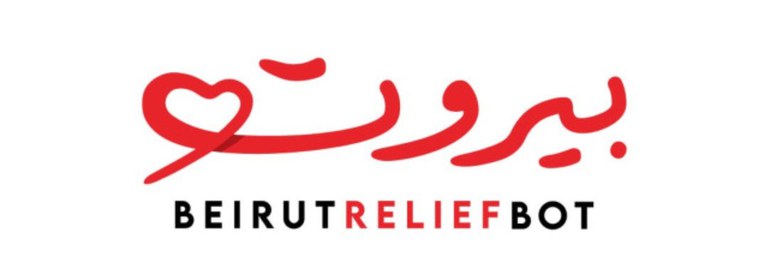The consequences of the explosion on the 4th of august are part of the daily life of Beirut’s inhabitants. At least 180 people were killed and more than 6,500 injured. Hundreds of thousands have lost all or part of their home, and have to find a new housing.
Edouard Bitar, founder of partner NGO Live Love Lebanonsays: “It’s not a crisis, it’s a disaster, and this disaster led us firstly to respond emotionally, bringing moral support to the people. We also wanted to find how we could coordinate efforts on the ground between diverse organisations providing help and relief, to bring the best possible response and help to people and to meet their needs”.
To ensure rapid help to the explosion’s victims, TSF has set up a call centre in partnership with Live Love Lebanon. The NGO’s staff members and volunteers are able to take calls from to people in need and link them with an NGO that is able to provide aid they need. Edouard Bitar explains: “We wouldn’t have had the means to realise [the call centre] without TSF. (…) The work is daunting ; we have set up a call centre to contact the people, and this is where Florent (TSF’s head of mission in Lebanon) and TSF’s expertise were crucial. They enabled to create a “WhatsApp Hotline” - that means a Bot which records the requests and transmit them to the call centre.
Adapt to local practices to communicate with communities
The call centre uses an innovative solution originally developed by TSF for Venezuelan refugees in Brasil in April 2018. Its flexibility allows it to be used directly by people on the ground, to facilitate relief coordination here at the Lebanon emergency.
To respond to this disaster and meet local needs, a new feature has been added by TSF’s engineers. WhatsApp is very widely used in Middle-East, and people are more comfortable with this instant messaging tool, rather than a classical online form. It is now possible to chat with the Beirut Relief Bot on WhatsApp, which will ask different questions on their family’s situation, their needs, and transmit them to Live Love Lebanon’s call centre in a standardised format. The family will be called back to be linked with an organisation specialised in the particular help they need.

BeirutReliefBot significantly improves the communication with affected families, and facilitate the requests for assistance.
Important needs in multiple sectors
The challenges are numerous: some families lost their home and all their belongings ; others are afraid to stay inside because the walls are in danger of collapsing. Given the number of casualties, injured people have limited access to medical care. These conditions can also jeopardize access to food.
Moreover, the inhabitants are often doubly vulnerable: not only because of the explosion, but also from the country’s wider situation and recent chronic economic challenges: unemployment, inflation, falling wages…, coupled with the Covid-19 epidemic that often impacts access to aid.
In the call centre set up by TSF and Live Love Lebanon, almost half of the requests are related to housing or reconstruction ; 20% concern medical care and 20% ask for food (the remaining 10% are linked to other sectors issues such as non-food items, sanitation...)
Since the call centre was set up on 14. August, more than 500 families have been reached and linked to organisations.
“This innovative solution will mean our support is accessible to more affected families” said Clément Bruguera, ICT and Emergency Manager from TSF, “and to help them rebuild their community and lives. It is being built on our global experience, but being adapted and implemented to meet the unique circumstances on the ground in Beirut.”

